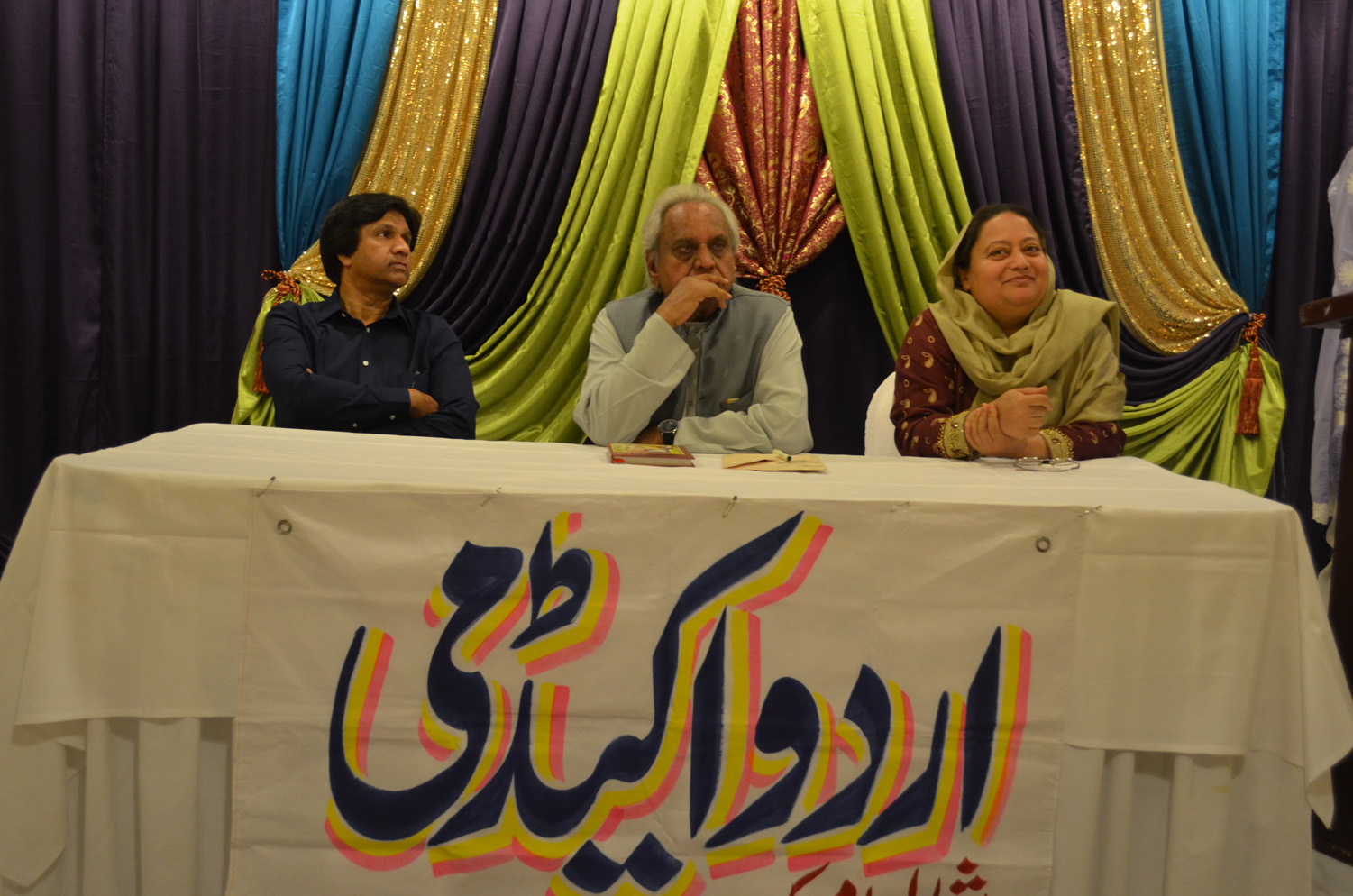|
Urdu Academy pays tribute to Allama Iqbal
By Abdus Sattar Ghazali
Muhammad Iqbal, popularly known as Allama Iqbal, was a philosopher, poet and politician in British India. He is widely regarded to have inspired the Pakistan Movement. However, he is also considered one of the most important figures in Urdu literature, with literary work in both the Urdu and Persian languages.
Urdu Academy of North America's August 17, 2014 literary session was dedicated to the life and work of this great Muslim philosopher and Urdu poet. The event was presided over by well-known poet Jazeb Qureshi while MC of the event was his talented daughter, Lubna Manzar. Lubna also presented a well researched paper on Allama Iqbal while Jazeb Qureshi also shared his valued thoughts about Allama Iqbal who is known as Shair-e-Mushriq meaning Poet of the East.
The event was held at the Chandni Restaurant, Newark CA.
Allama Iqbal was born in 1877 in Sialkot and passed away in 1938 at the age of 60. Iqbal is admired as a prominent classical poet by Pakistani, Indian and other international scholars of literature. Although most well known as a poet, he has also been acclaimed as a modern Muslim philosopher. His first poetry book, Asrar-e-Khudi, appeared in the Persian language in 1915, and other books of poetry include Rumuz-i-Bekhudi, Payam-i-Mashriq and Zabur-i-Ajam.
Iqbal's first work published in Urdu, the Bang-e-Dara (The Call of the Marching Bell) of 1924, was a collection of poetry written by him in three distinct phases of his life. The poems he wrote up to 1905, the year Iqbal left for England imbibe patriotism and imagery of landscape, and includes the Tarana-e-Hind (The Song of India), popularly known as Saare Jahan Se Achcha and another poem Tarana-e-Milli [Anthem of the (Muslim) Community], The second set of poems date from between 1905 and 1908 when Iqbal studied in Europe and dwell upon the nature of European society, which he emphasized had lost spiritual and religious values. This inspired Iqbal to write poems on the historical and cultural heritage of Islamic culture and Muslim people, not from an Indian but a global perspective. Iqbal urges the global community of Muslims, addressed as the Ummah to define personal, social and political existence by the values and teachings of Islam.
Iqbal preferred to work mainly in Persian for a predominant period of his career, but after 1930, his works were mainly in Urdu. The works of this period were often specifically directed at the Muslim masses of India, with an even stronger emphasis on Islam, and Muslim spiritual and political reawakening. Published in 1935, the Bal-e-Jibril (Wings of Gabriel) is considered by many critics as the finest of Iqbal's Urdu poetry, and was inspired by his visit to Spain, where he visited the monuments and legacy of the kingdom of the Moors. It consists of ghazals, poems, quatrains, epigrams and carries a strong sense religious passion.
As usual the Urdu enthusiasts recited Allama Iqbal's poetry to the flowing audience: Mobeen Khalil, Irshad Ali Khan, Ambareen Vakil, Tasadduq Hussain Attari, Salma Arastu, Dr. Arifa Ahmed, Abdus Sattar Ghazali, Razia Shamim, Manzar Salam, Sarwat Iqbal, Sohab Hamdani, Khalid Rana, Ken Sherfy, Zafar Khan, Jafar Sahah, Nagesh Avadhani and Lubna Manzar.
At the end Tashie Zaheer, President of the Urdu Academy of North America, thanked the guests for promoting the Urdu language. He particularly thanked entrepreneur Syed Sarwat for promoting the cause of Urdu by providing Chandni Restaurant to hold its meetings since 2009.
See more pictures on next page of 3 pages
|